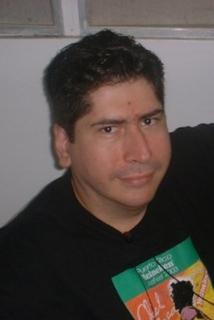A fair choice for Puerto Rico is a real choice
 A fair choice for Puerto Rico is a real choice
A fair choice for Puerto Rico is a real choice Rep. Luis Fortuno Special to the Sentinel Posted April 5, 2007
The Orlando Sentinel, in its March 28 editorial, "A Stacked Deck," was badly misled about the bipartisan bill I co-sponsored to enable Puerto Ricans to determine their preference for Puerto Rico's future political status.The fundamental misunderstandings concern what Puerto Rico's status is now and what our governor has proposed that it be. They are very different, but the governor -- and the editorial -- call both "commonwealth."
Instead of candidly recognizing that Puerto Rico is actually an unincorporated territory of the United States, the governor has proposed that "commonwealth" be treated as a nation to which the U.S. is permanently bound, with the powers to nullify federal laws and court jurisdiction, and to enter into international trade and other agreements and organizations states cannot.
At the same time, the U.S. grants an additional subsidy, replaces repealed tax exemptions for companies from the states, and continues to grant free entry to all goods shipped from Puerto Rico (including those from other countries), continuation of all current assistance to Puerto Ricans, and permanent U.S. citizenship.
Did the Sentinel really mean this proposal when it referred to "commonwealth"?Puerto Rico wasn't "established as a commonwealth in 1952," as the editorial stated. A local constitution naming the territorial government "The Commonwealth" was adopted then, and the vote to approve it did not present any political-status options.
Four states and two other territories also have "commonwealth" in their name, but "commonwealth" is not a status in the way that "state," "territory" and "nation" are. And the governor's "commonwealth" has been judged to be impossible by both Bush presidents and the Clinton administration, as well as President Bush's Task Force on Puerto Rico's Status and every member of Congress who has commented on the governor's proposal.
The bill that members of Congress have sponsored together with Congressman Jose Serrano and myself would not pit "commonwealth" against "combined supporters of statehood and independence" and, if "commonwealth lost," have a second vote between independence and statehood.Instead, it would ask Puerto Ricans whether they want to continue territory status or seek a non-territory status.
All of Puerto Rico's political leaders say they want a non-territory status. If a majority of Puerto Ricans agreed -- the cornerstone of democratic rule -- there would then be a choice among all the non-territory options U.S. officials have said are possible. Those include nationhood in a free association with the United States as well as independence and statehood.A choice can only be fair -- and productive -- if it involves real options.
A choice with an impossible "commonwealth" proposal would not be fair or worthwhile.Impossible "commonwealth" proposals have made all three referenda that Puerto Rico has held on the issue inconclusive -- including the two cited in the editorial.A "commonwealth" proposal won in 1967 but it was rejected in Congress. Another "commonwealth" proposal obtained a slight plurality over statehood -- not a majority -- in 1993 but it was not accepted by the Clinton administration or congressional leaders.
The current status got almost no votes in 1998 in a referendum that was confused by the current governor's "commonwealth" proposal -- leading Clinton to establish the President's Task Force to clarify Puerto Rico's options and to recommendations by the task force members appointed by Bush that led to the bill that others and I in the House have introduced.Legislation for a "constitutional convention" that would define Puerto Rico's options, as suggested in the editorial, isn't needed and wouldn't advance the issue.
Puerto Rico could hold a convention without congressional action -- but Puerto Rico's legislature opposes the idea. Statehood is defined in the Constitution, independence in international law, and free association in international and U.S. law. And Puerto Rico's undemocratic territory status is defined in U.S. law -- primarily by the U.S. Supreme Court. What's needed is for the full Congress to join the president in clarifying Puerto Rico's real options and for Puerto Ricans to choose.
Finally, regarding the suggestion of a referendum between "commonwealth" and statehood alone:If by "commonwealth" the editorial meant Puerto Rico's current status, it would be unfair to exclude independence and free association. And, if by "commonwealth" it meant the governor's proposal, it would be unfair to all voters since it is not a real option.Puerto Ricans deserve a process that includes all the options -- all the real options.
Rep. Luis Fortuno is the at-large representative to the U.S. government, for 4 million U.S. citizens of Puerto Rico.



0 Comments:
Publicar un comentario
<< Home